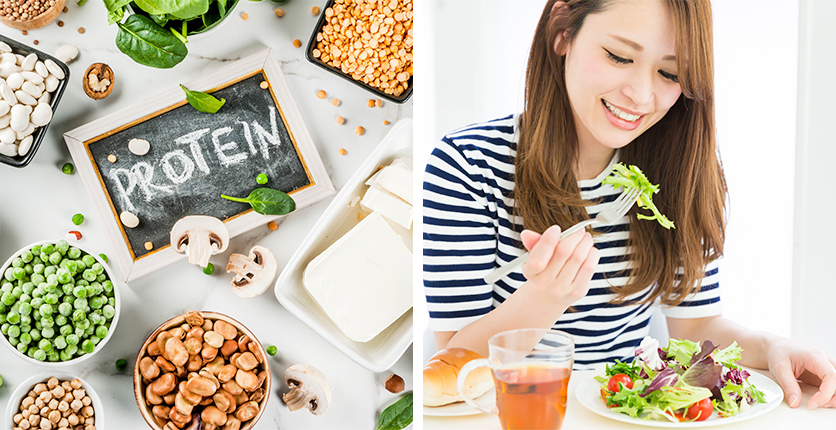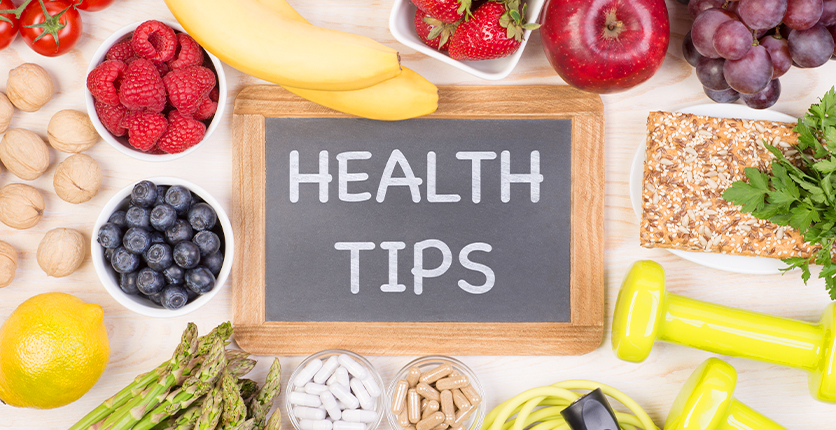Your nutritional needs are influenced by a range of factors, such as your age and gender. But other factors play a part, too, including your lifestyle, health status and individual dietary requirements.
The body needs approximately 40 different nutrients to function properly. But, depending on your age group, you should be mindful to include these in your daily diet.
Nutrition for women
Your 20s
You may be physically active and busy with your career and social life and have no time to eat well. You may also be keeping late nights and therefore missing out on sleep.
According to nutritionist and naturopath Tiffany Wee from Mind Body Shine, you should take a B-complex vitamin for energy and stress support, and to help with detoxification, especially if you consume a lot of processed foods and alcohol.
Protein is also important for muscle recovery and to help balance your blood sugar so you’re less prone to weight gain. Plant-based protein is ideal – you can find this in beans, legumes and tofu.
In your childbearing years, you also need iron, to replenish blood lost every month through menstruation; and folate, to reduce your chance of having a baby with serious birth defects of the brain and spine. Foods rich in iron include green leafy vegetables, beans, red meat, dried fruit like apricots, and iron-fortified cereal, while foods high in folate include legumes, asparagus, eggs and green leafy vegetables.
A daily probiotic or probiotic-rich foods are also recommended. Tiffany says that probiotics keep your gut flora in check. When your gut is healthy, you enjoy better digestion, better mood and greater immunity against infections.
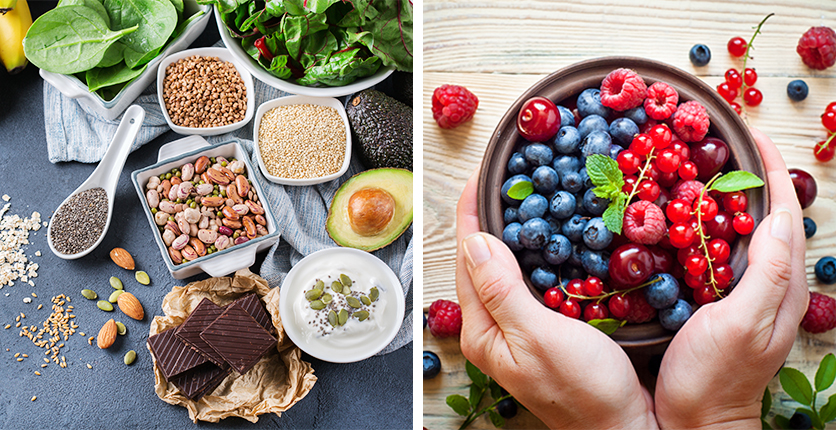
Your 30s
It may be a stressful time as you juggle career, marriage, motherhood and family life. You may be experiencing decreased stamina, lower energy levels and unexplained weight gain.
Tiffany says to eat foods with magnesium, a nutrient that supports muscle and nerve function and energy production. Chronically low levels of magnesium may increase your risk of hypertension, diabetes, osteoporosis and heart disease. Foods rich in magnesium include pumpkin seeds, almonds, soy milk, spinach and rolled oats.
To boost your immunity, eat plenty of antioxidant-rich foods like citrus fruits, berries and vegetables. Tiffany also recommends mushroom supplements like reishi and lion’s mane to help with stress and anxiety.

Your 40s
Many women start to experience perimenopause in their 40s, and along with it, a decrease in lean muscle mass and muscle strength. They may also not be as physically active and more vulnerable to falls.
“Calcium is essential to reduce your risk of osteoporosis, a disease that weakens the bones to the point where they can break easily,” says Tiffany.
“Calcium citrate is better than calcium carbonate. If you’re using a supplement, take it with vitamins D3 and K2 to improve absorption.”
Foods containing calcium include dairy products, calcium-fortified orange juice, tofu, canned sardines and salmon.
You may also wish to include plant-based protein, Tiffany adds, to help with muscle recovery and to stabilise your blood sugar levels.
“Look for pea protein, in particular. It has the same amount of protein per cup compared to cow’s milk, and also has 50% more calcium than cow’s milk.”
To balance your hormones and relieve symptoms of perimenopause, as well as improve your energy levels and libido, she suggests taking an adaptogen called maca. Also known as Peruvian ginseng, maca is derived from the root of a cruciferous vegetable native to the South American country.
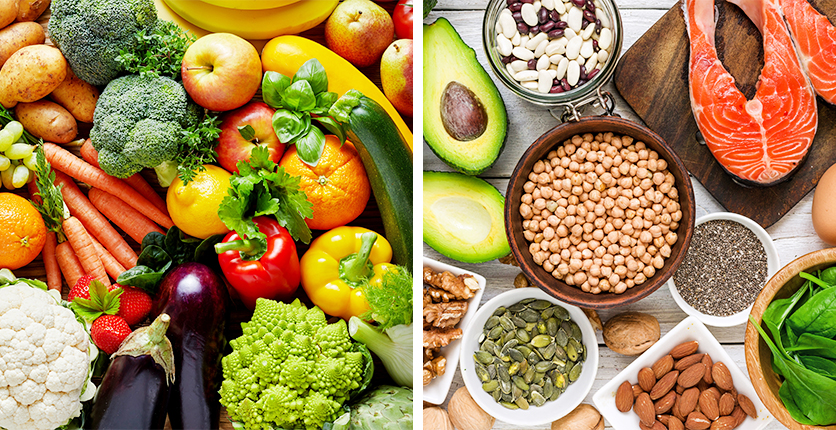
Your 50s and beyond
You may be dealing with loss of muscle mass leading to reduced muscle strength. Your brain may also be undergoing changes which may affect cognitive functions. Vision issues like macular degeneration are also common at this age.
“Selenium is important as your body needs it to make glutathione, a major antioxidant that helps with repair processes,” Tiffany points out. “Two Brazil nuts a day will fulfil your daily selenium needs.”
Load up on antioxidant-rich foods, too, to help neutralise damage-causing free radicals in the body. Eat as many colourful fruits and veggies as possible every day – their antioxidants are contained in their pigment.
“Red foods, like beets, cherries and tomatoes, for example, are anti-cancer and anti-inflammatory and help with heart and liver health. Yellow foods, like pineapple, starfruit and Asian pears, protect cells and improve eye health. Blue, purple and black foods, like blueberries, purple cabbage, kale and eggplant, are also anti-cancer and help with heart and cognitive health.”
To keep your brain healthy and assist with joint and heart health, consume foods rich in omega-3 fatty acids, like salmon and other oily fish, flaxseed, chia seeds, walnuts and soybeans.
Nutrition for men
Your 20s
Life can be hectic and demanding as you deal with work and social commitments. Your energy demands may be high if you’re physically active.
“Protein is essential for building and repairing muscle tissue, which can help to support strength and overall health,” says Alicia Davenport, a nutritionist and naturopath at Chi Tree Health.
“It’s also important for the production of male hormones, such as testosterone. Good sources of protein include organic or grass-fed lamb, beef, chicken, sardines, wild-caught salmon, tempeh, eggs and lentils.”
If you’re over-indulging in junk food, you’re likely to have a low dietary intake of magnesium. Foods high in magnesium include green leafy vegetables like spinach, pumpkin seeds, almonds, black beans and avocado. Alcohol also interferes with the absorption of magnesium in the body, which can lead to depletion over time.
Magnesium is a vital nutrient for overall health and well-being, Alicia adds. It helps to regulate blood sugar levels, is required for the synthesis of proteins in the body, including muscle proteins, plays an important role in regulating the sleep-wake cycle, and more.
You also need zinc, which is important for male fertility, supporting healthy sperm production and motility. Zinc is also critical for energy metabolism, protein synthesis and immune function, says Alicia. Food sources include oysters, grass-fed beef or pork, organic chicken, beans, nuts, and pumpkin seeds.
Don’t forget omega-3 fatty acids, which help to support mood regulation and may be particularly useful for men who are dealing with stress, anxiety or depression. This healthy fat also promotes joint health and decreases inflammation, which could be beneficial for men who play sports or are physically active.
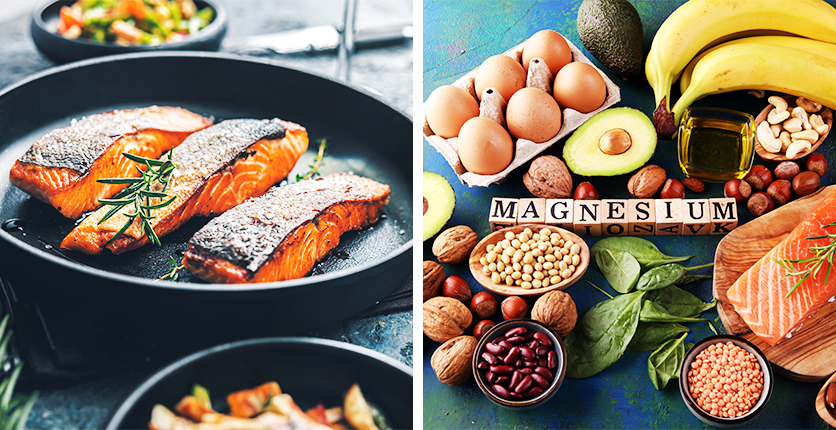
Your 30s
It may be a stressful and physically demanding time and your body may be undergoing a host of changes, says Alicia.
For example, your testosterone levels start to decline as you approach your 40s – this may be due to genetics, age, and a stressful lifestyle.
“Prolonged stress can lower testosterone levels by depleting the precursor hormones required for its production. However, to effectively address low testosterone levels, it’s essential to identify and tackle the underlying cause rather than resorting to temporary solutions. By targeting chronic stress, certain nutritional factors can help support testosterone production during this stage.”
Be sure to include B group vitamins, to help you maintain good energy levels, manage stress and support a healthy metabolism. These are found in foods like free-range eggs, lamb, wild-caught fish like salmon, sea vegetables like spirulina, green leafy vegetables, and beans, legumes and peas.
Magnesium is also essential when you’re in your 30s.
“When the body is under stress, it releases a hormone called cortisol, which can cause the body to excrete magnesium through the urine – this can lead to low magnesium levels and exacerbate the effects of stress,” Alicia explains.

Your 40s
You may become aware of the gradual decline in testosterone levels, especially if you’re grappling with chronic stress and other unfavourable lifestyle choices. Certain protective nutrients may help with hormonal imbalances, enhance bone health and slow down the age-related decrease in muscle mass.
Vitamin D is important for bone health as it helps the body absorb calcium, says Alicia. You can get this from sun exposure – aim for at least 15 minutes in the morning.
Vitamin K is also essential for bone health, as it helps regulate calcium metabolism. Good sources include green leafy vegetables, cruciferous vegetables like broccoli and brussels sprouts, and fermented foods.
“Age-related muscle loss, called sarcopenia, is a natural part of ageing,” Alicia states.
“After age 30, you begin to lose as much as 3% to 8% per decade. Most men will lose about 30% of their muscle mass during their lifetimes. Speak to your nutritionist in regards to how much protein you should aim to consume daily.”
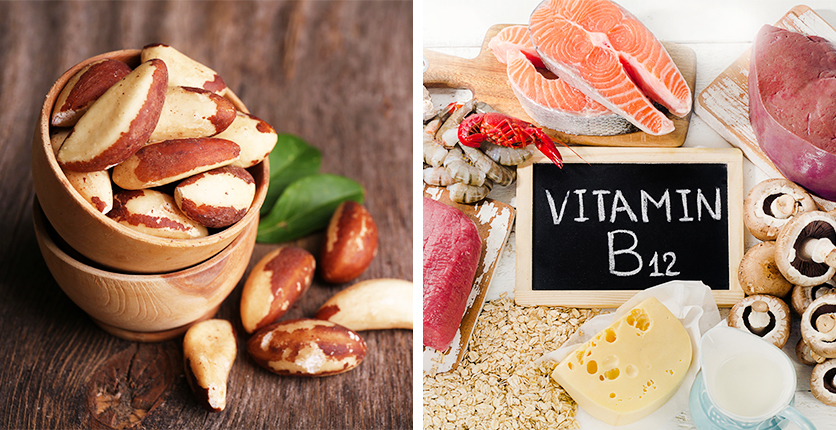
Your 50s and beyond
While not an exhaustive list, here are some nutrients that men over 50 may want to consider. These include support for prostate function. Many of these nutrients tick multiple boxes for common health concerns over the age of 50, including brain function, eye health and maintaining energy levels.
First, selenium, which acts as an antioxidant and anti-inflammatory agent, protects against oxidative stress and inflammation, both of which are implicated in the development of prostate cancer. Brazil nuts are an excellent dietary source of selenium, but don’t overdo it.
DHA (Docosahexaenoic acid) is a type of omega-3 fat. Alicia says that it’s an important structural component of the brain and plays a crucial role in maintaining cognitive function, including memory and attention, which can decline with age.
“Adequate intake of DHA may support brain health and reduce the risk of age-related cognitive decline. DHA is also essential for maintaining eye health, as it is a key component of the retina. Adequate intake of DHA may help reduce the risk of age-related macular degeneration, a condition that can lead to vision loss in older adults. Omega-3 foods, like wild-caught fish, reduce inflammation of the prostate.”
Be sure to consume foods rich in antioxidants like vitamins C and E, which may help protect against oxidative stress and inflammation that can contribute to age-related cognitive decline and eye issues. Good sources of vitamin C include citrus fruits and berries. Vitamin E sources include nuts and seeds such as almonds and sunflower seeds.
Vitamin B12 plays a crucial role in the production of red blood cells, DNA synthesis nerve function and energy production, Alicia adds. As you age, your ability to absorb vitamin B12 from food may decrease, leading to a deficiency. It’s important to note that vitamin-B12 rich foods are animal-based, so if you’re vegetarian or vegan, you may wish to take a supplement.
Note: Please consult your GP or physician before starting on a new diet or exercise plan.
SAFRA members receive special discounts on health screenings and other healthcare services. For the full list of healthcare benefits, go to safra.sg/promotions/
NSmen, sign up for your complimentary 1-year SAFRA membership and enjoy discounts on dining and shopping purchases at over 2,000 merchant outlets islandwide, as well as members’ rates at more than 45 sports facilities at SAFRA clubs! What’s more, your family can enjoy the privileges too – your 1st dependent pays $10/year, and it’s free for your 2nd dependent onwards. Click here for more details.
Want more articles like this, and other lifestyle content right in your inbox? Download the new SAFRA mobile app and opt in for the eNSman Newsletter – you don’t need to be a SAFRA member to subscribe – and never miss another story!

